Hurricane Ida swept away coffins in a Black town outside the levee system – and residents are still pleading for help
After decades of neglect, the community of Ironton – founded by formerly enslaved people – begins another long road to recovery at the centre of Louisiana’s oil and gas industry, Alex Woodward reports

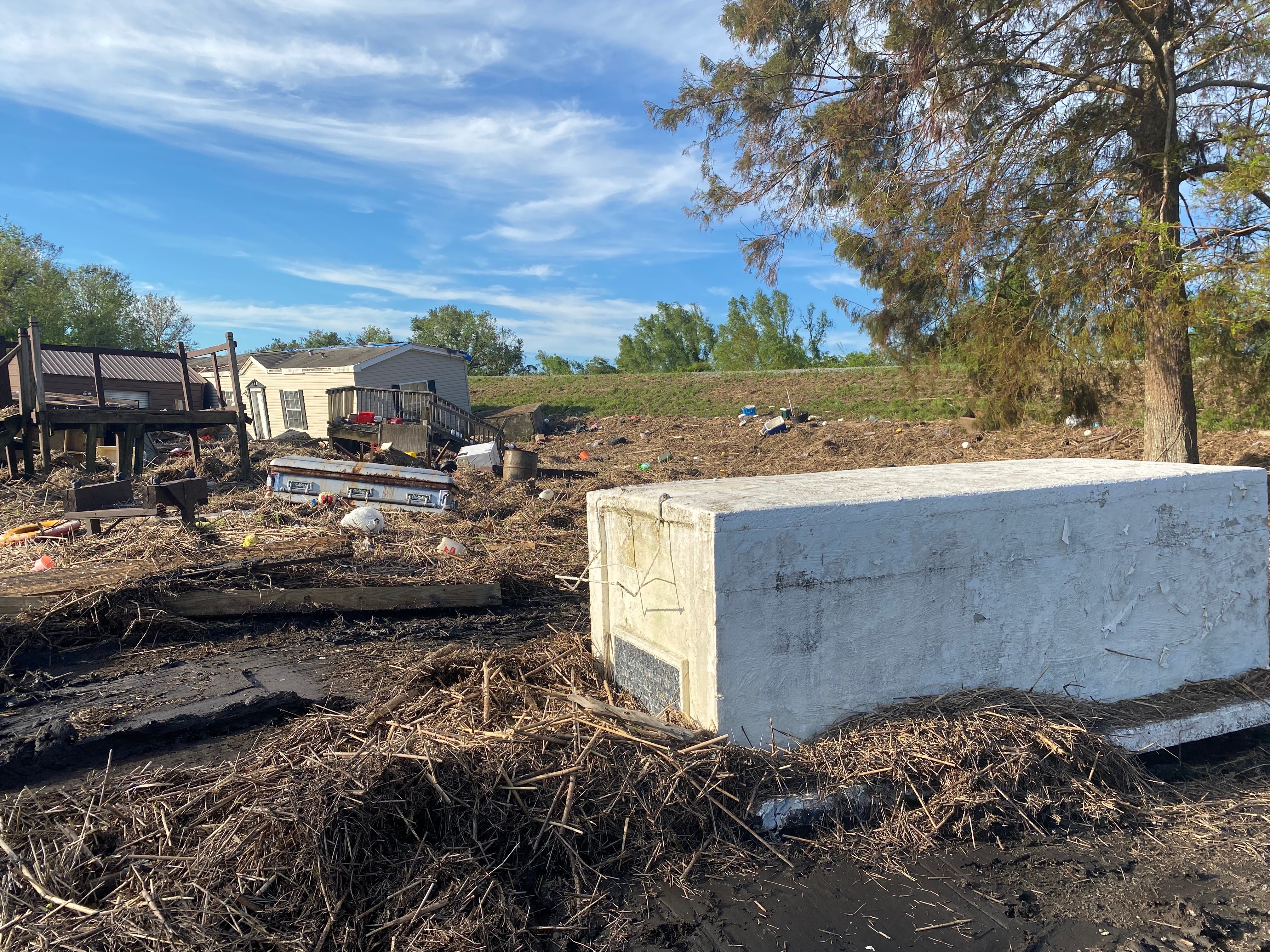
Your support helps us to tell the story
From reproductive rights to climate change to Big Tech, The Independent is on the ground when the story is developing. Whether it's investigating the financials of Elon Musk's pro-Trump PAC or producing our latest documentary, 'The A Word', which shines a light on the American women fighting for reproductive rights, we know how important it is to parse out the facts from the messaging.
At such a critical moment in US history, we need reporters on the ground. Your donation allows us to keep sending journalists to speak to both sides of the story.
The Independent is trusted by Americans across the entire political spectrum. And unlike many other quality news outlets, we choose not to lock Americans out of our reporting and analysis with paywalls. We believe quality journalism should be available to everyone, paid for by those who can afford it.
Your support makes all the difference.Lakes of black, knee-deep mud cover the small village of Ironton, Louisiana, more than three weeks after Hurricane Ida pushed several feet of water into homes, ripped siding from buildings and displaced caskets from nearby cemeteries into the muck.
A casket stands upright, buried in the mud, in front of one home. Others are scattered across Ironton on heaps of marsh grass along the levee shielding the community from the Mississippi River.
The village – roughly 30 miles south of New Orleans – sits between Highway 23 and the river along the West Bank in Plaquemines Parish.
It’s one of the parish’s oldest Black communities, founded by formerly enslaved people from the nearby St Rosalie plantation, and living in the shadow of the oil and gas industry, which carved the shipping canals into the marshes south of the highway. The Phillips 66 Alliance Refinery in neighbouring Belle Chasse is just three miles north.
John Broussard, who works at the refinery, sits in the back of a truck bed with a group of other Black men from Ironton after a day of collecting marsh grass into heaps and clearing the streets of cracked mud. He points to the cemetery on one side of the town, then sweeps his hand to the cemetery on the other side.
“Coffins, on those streets over there, all came from those graves on the other side,” he says. “It’s going to be a slow process and a long road to recovery, as you can imagine, just looking out at the community. But eventually everyone will get there.”
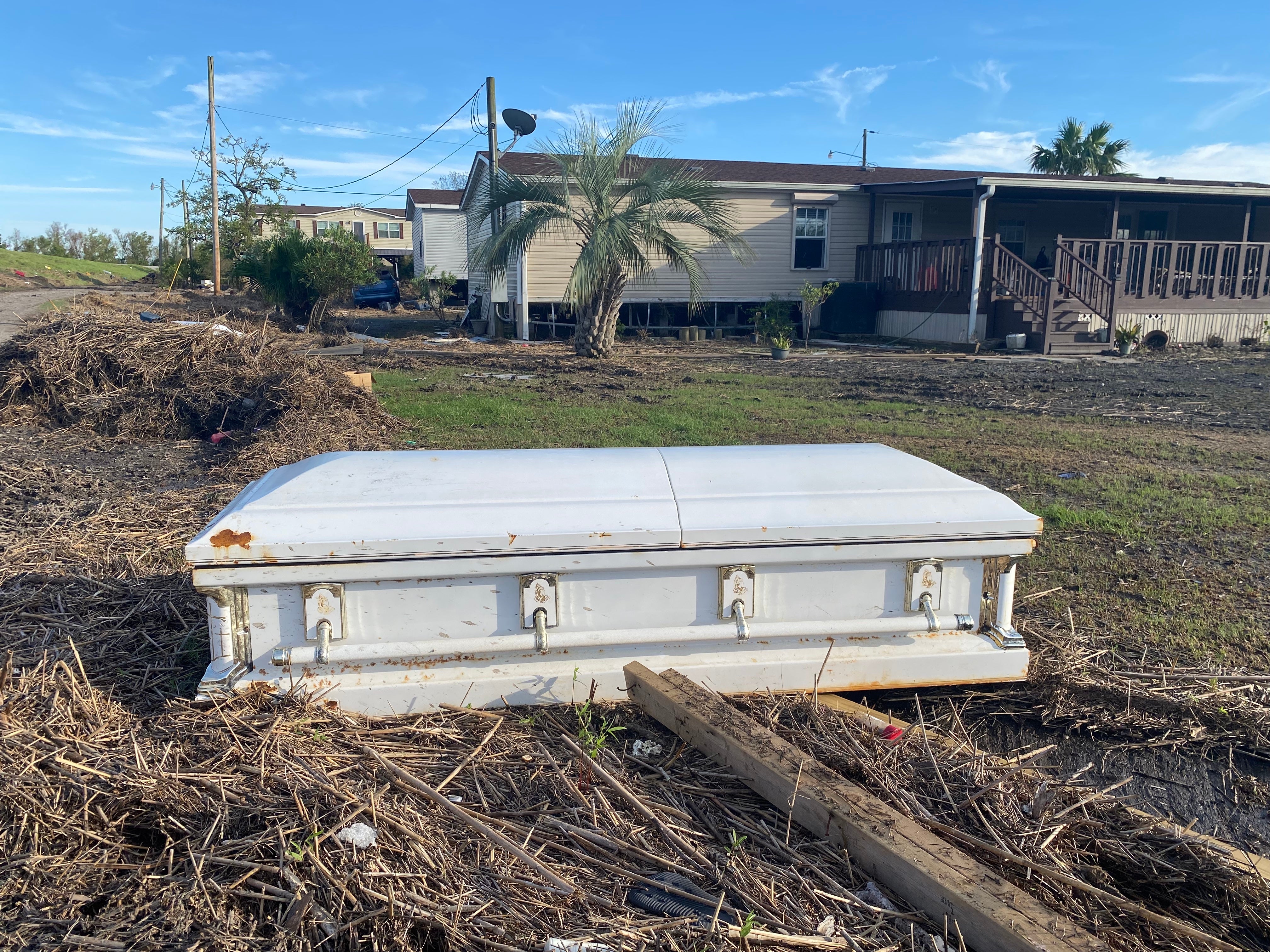
Mr Broussard, wearing a black collared shirt and camouflage shrimp boots, was born and raised in Ironton. Much of his family left the area after Hurricane Katrina in 2005, which struck a similar blow to a community that exists outside of New Orleans’ federal levee protection system.
“It’s a small community – everybody pretty much knows each other,” he says. “I consider everybody family.”
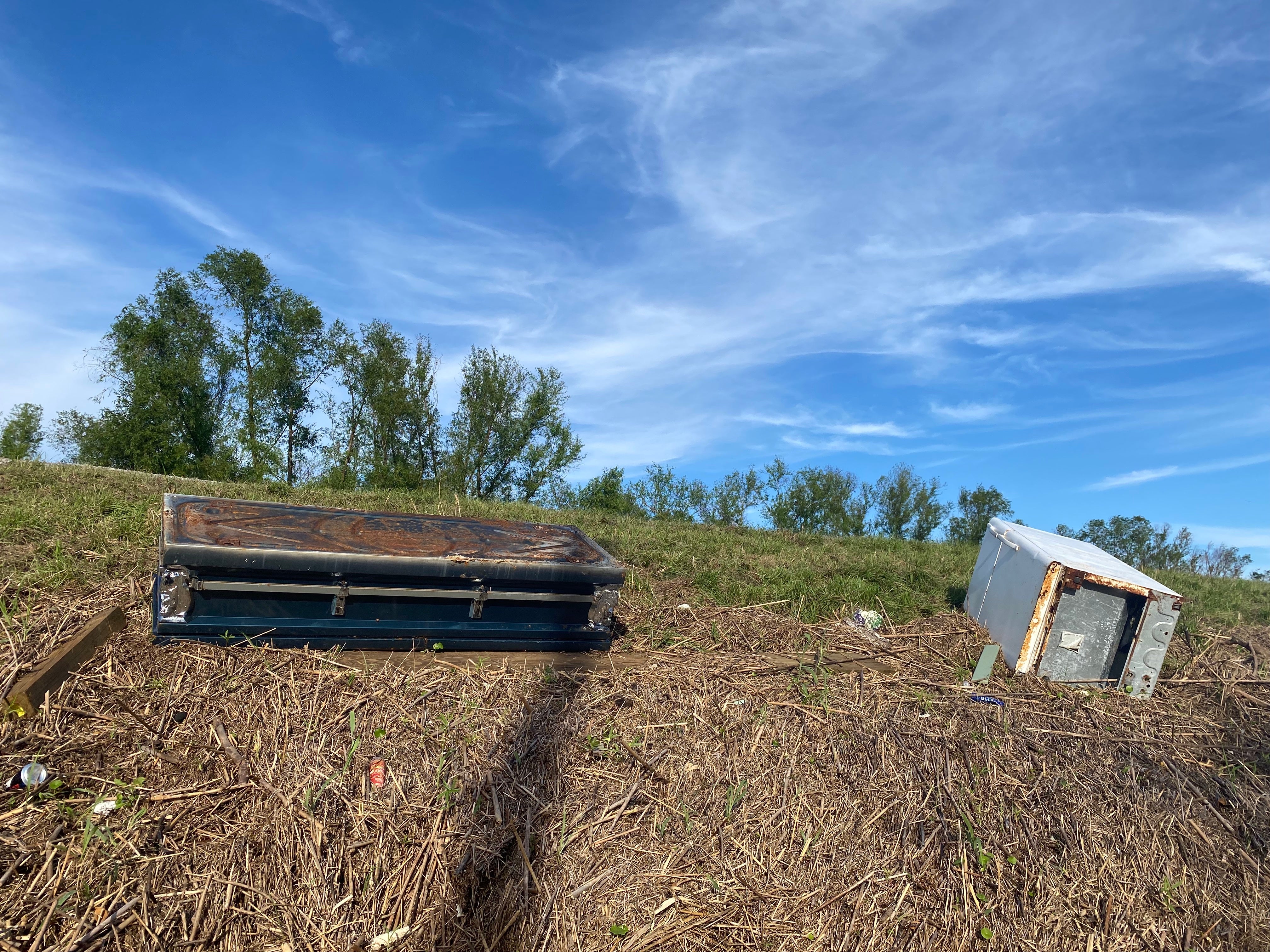
White tombs in the oak-lined graveyard hold generations of Ironton history. The church at the town’s centre, St Paul Missionary Baptist Church, was established in 1880. Pastor Haywood Johnson has served the church for more than 20 years, and buried many of the people in its cemeteries.
When Ida struck on 29 August, the community endured eight feet of storm surge and winds of up to 150mph or higher for 15 hours. Some homes toppled over or split in two after powerful winds and floodwaters rattled them from their raised foundations.
Inside the church, the heavy smell of mould and mildew fills the damp air, and mud that swept up from bayou marshes cakes the floors. The water pushed several pews on top of each other.
The state’s Cemetery Response Task Force estimates 30 to 40 caskets were displaced. The organisation is beginning a long process of identifying families and displaced caskets before moving them, according to task force chair Ryan Seidemann.
“I’m just thankful that nobody lost their life,” Mr Broussard says. “People lost a lot of their possessions, things that can be replaced, which is still hard to go through. Dealing with all that causes a lot of stress, but the most important thing is lives.”
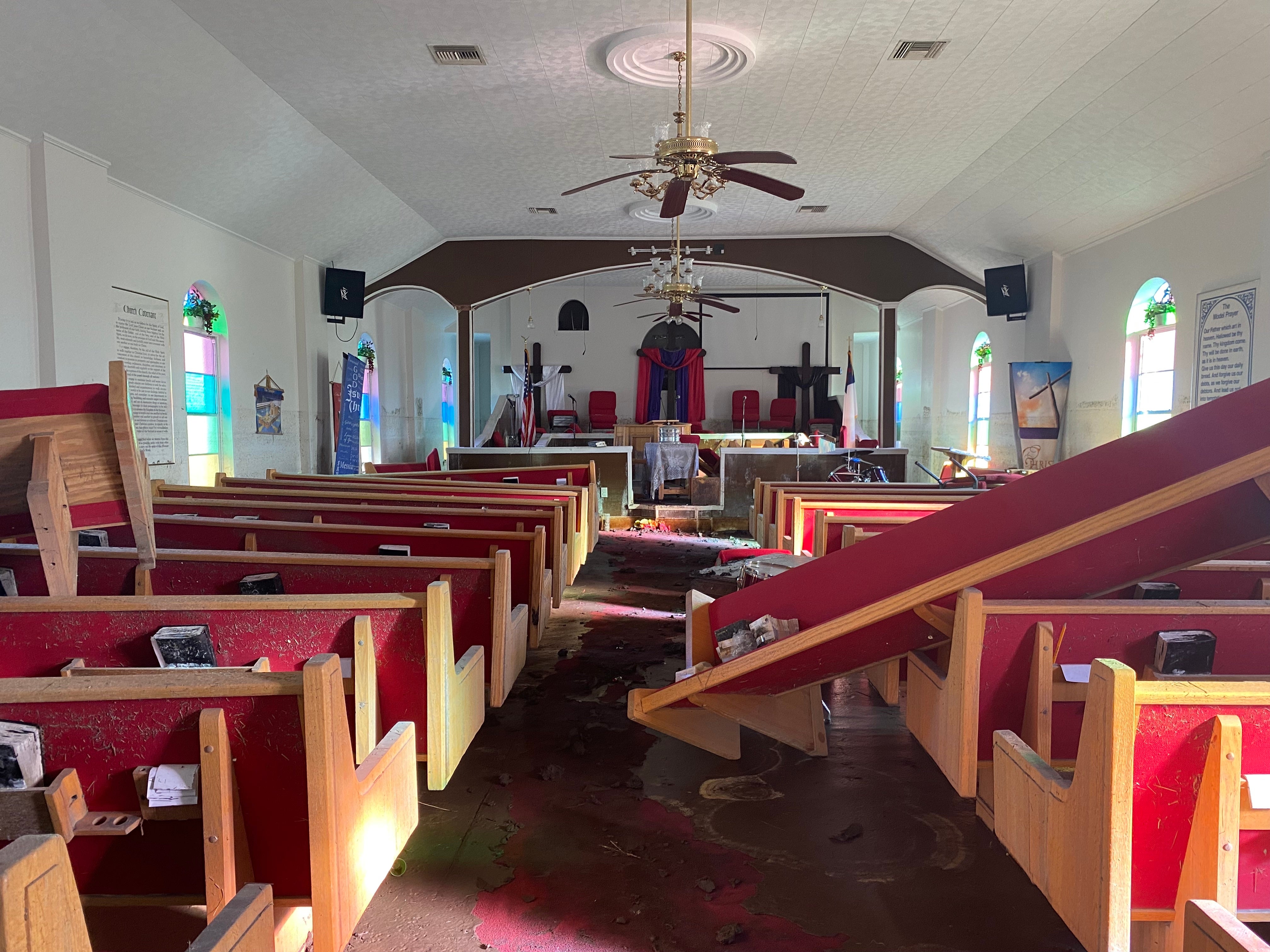
Ironton is among the many towns in remote parts of the state hardest hit by the storm, which displaced thousands of people from flood- and wind-damaged homes in bayou communities and along the Mississippi River near the Gulf of Mexico.
For decades, Ironton has existed at the historical centre of the state’s legacy of white supremacism and the fossil fuel economy that has torn apart the vital bayous and marshes that protect the coast and its communities.
For Mr Broussard and the men sipping beer after clearing debris in the late-summer heat, Ironton’s residents are confident they will rebuild, but sceptical that any lasting help will arrive, with no expectation that the federal government is paying attention following years of neglect.
“I really don’t think we’re a priority,” Ironton’s Pastor Johnson told The Times-Picayune. “Sometimes God got to use the dead to make the living see what’s going on.”
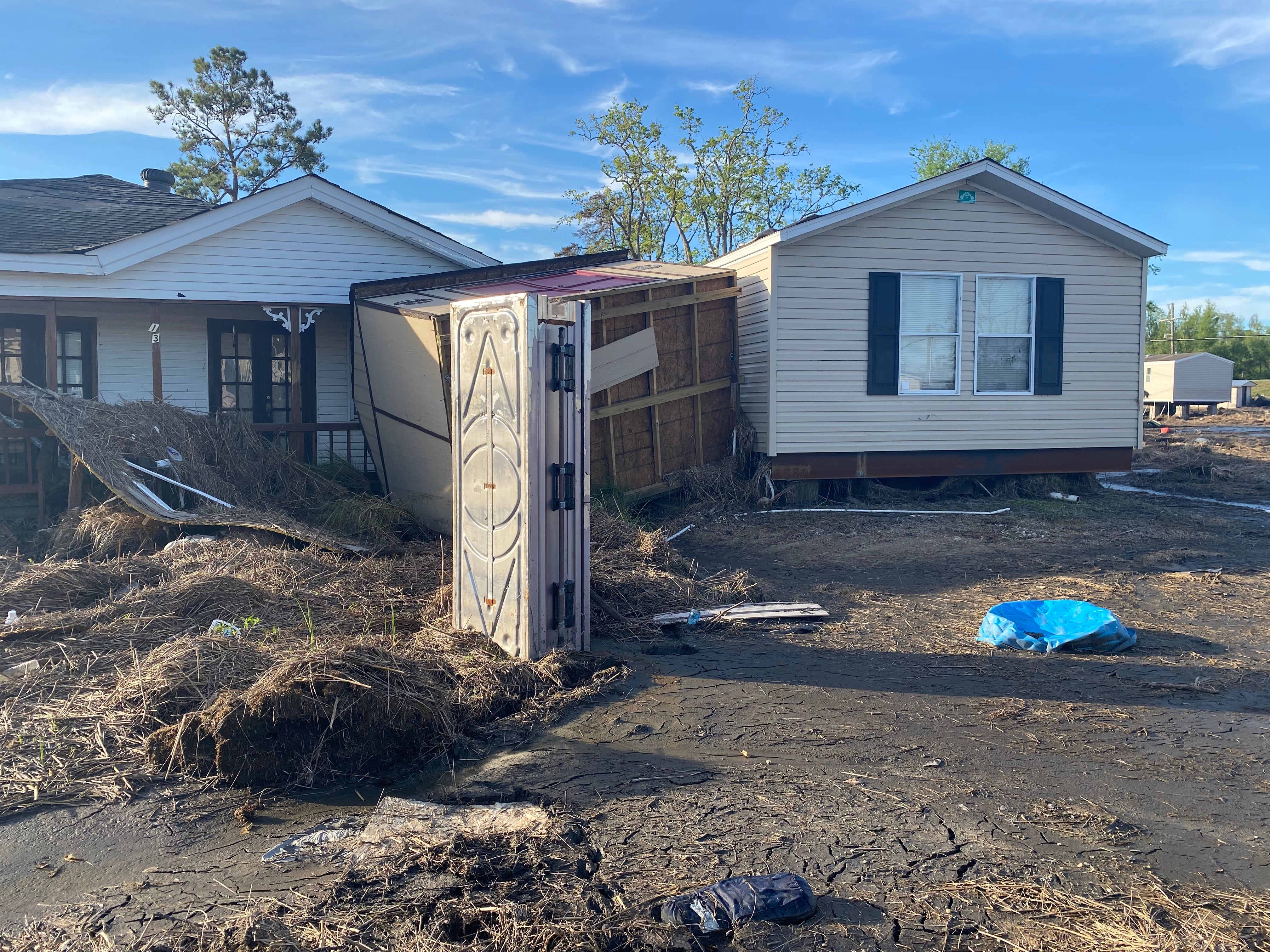
A handful of blocks house roughly 150 residents, many of whom are able to trace their lineage to the freed people who founded the village on the banks of the river 200 years ago, when sugarcane grew in surrounding marshes.
Now, oil tankers travel the river and the man-made canals in fragile bayous, and coal terminals on the river scatter soot over nearby communities.
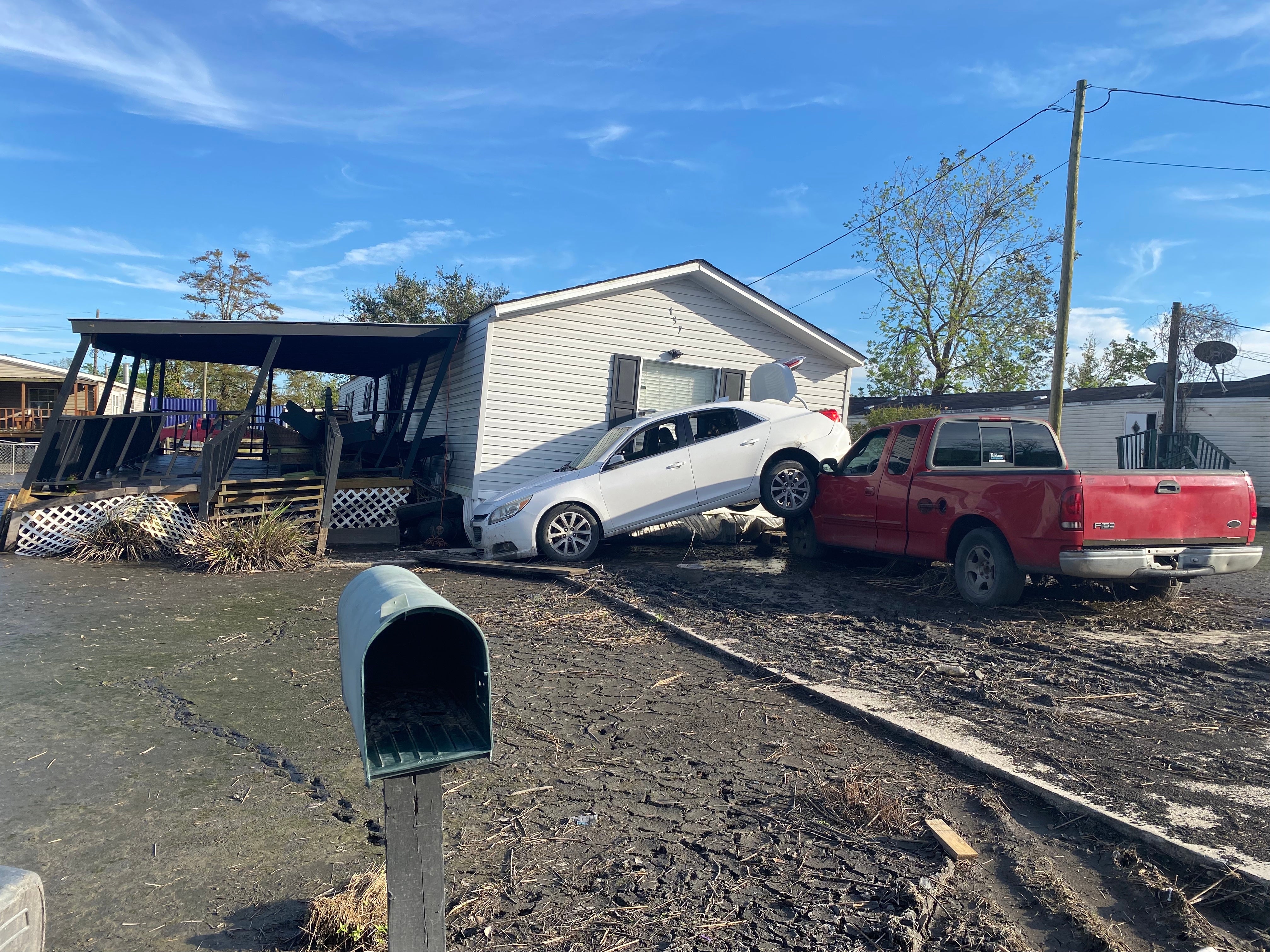
Ironton also did not have running water until 1980 after years of resistance among Plaquemines officials despite an oil boom in the mostly white parish.
Residents and environmental groups have repeatedly opposed plans for new fossil fuel developments in the area, including a coal terminal and a crude oil export facility that could disrupt critically needed river sediment diversion projects to help rebuild and sustain nearby wetlands.
One proposed oil facility would build its tankers on historic gravesites for the enslaved people from the St Rosalie plantation.
Like many bayou communities and residents outside the federally built New Orleans levee system, Ironton residents have sought stronger protection from the US Army Corps of Engineers for years, after rebuilding from Hurricane Isaac in 2012 and Hurricane Katrina in 2005.
Ironton relies on a mostly man-made, 15-mile stretch of levees just 3- to 6-feet above the river.
Parish President Kirk Levine wrote to President Joe Biden and the state’s congressional delegation “concerning the importance of this area receiving the proper levee protection and having the federal government provide much needed mitigation grants for home elevations for this community to come back and survive,” according to a statement from his office.
The Army Corps of Engineers has issued plans for two levee projects in Plaquemines Parish that would bolster 20 miles of levees, with work expected to finish within two years.
Mr Levine also asked the president for immediate housing assistance as thousands of residents face a housing crisis in Ida’s aftermath.
FEMA is in the process of opening its transitional shelter assistance programme, according to Mr Levine. Though temporary trailers are authorised as part of the programme, “it would be sometime next year before that would be in place,” according to a statement from the parish.
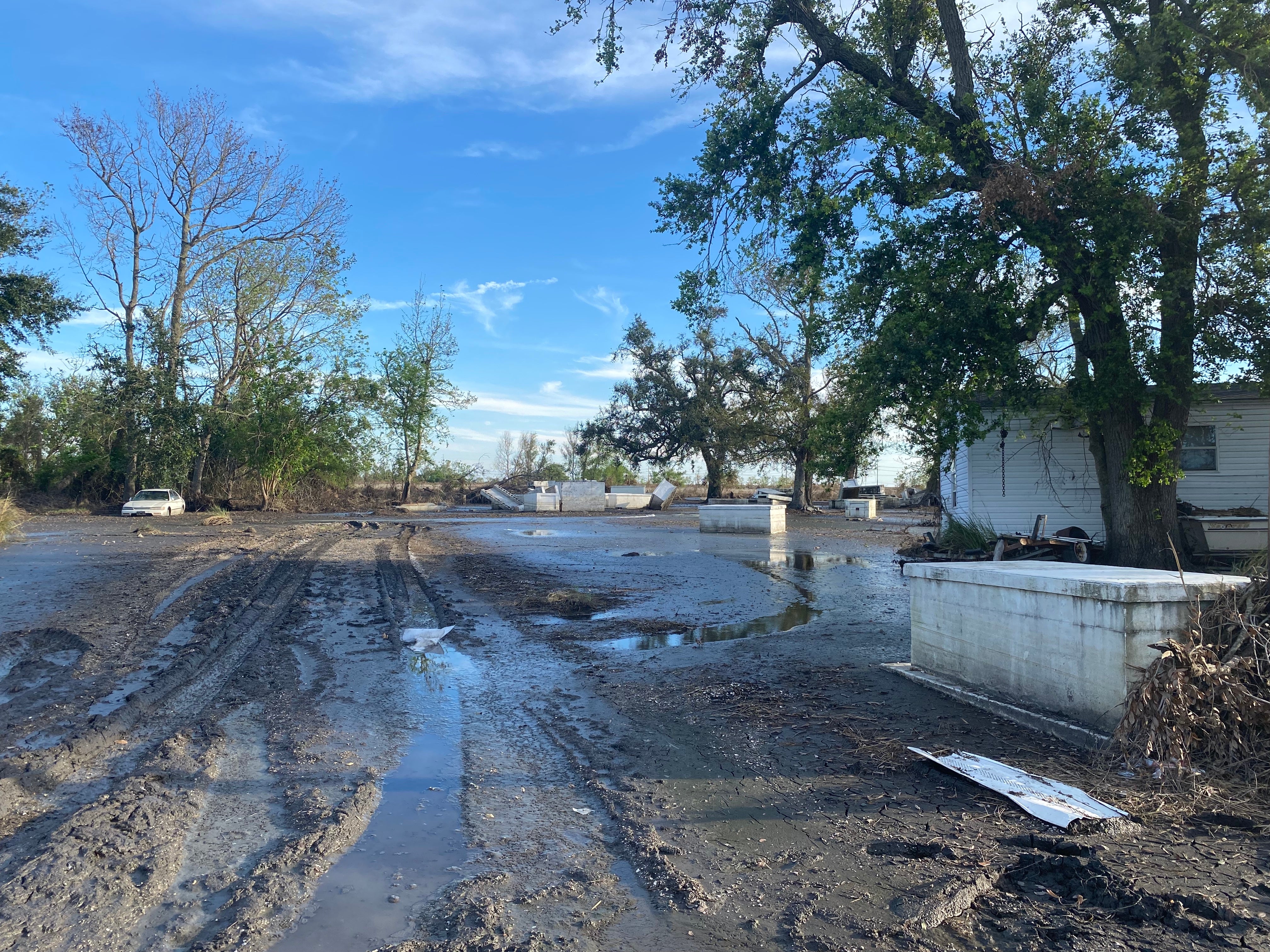
For now, Ironton families are waiting to hear from FEMA and their home insurance companies before the painful, laborious process of gutting their homes, still soaking from floods.
“With a community like this, they’re going to come back,” Mr Broussard says. “Some people may choose not to, to each his own, but eventually it’ll get back. This is their home.”
Join our commenting forum
Join thought-provoking conversations, follow other Independent readers and see their replies
Comments